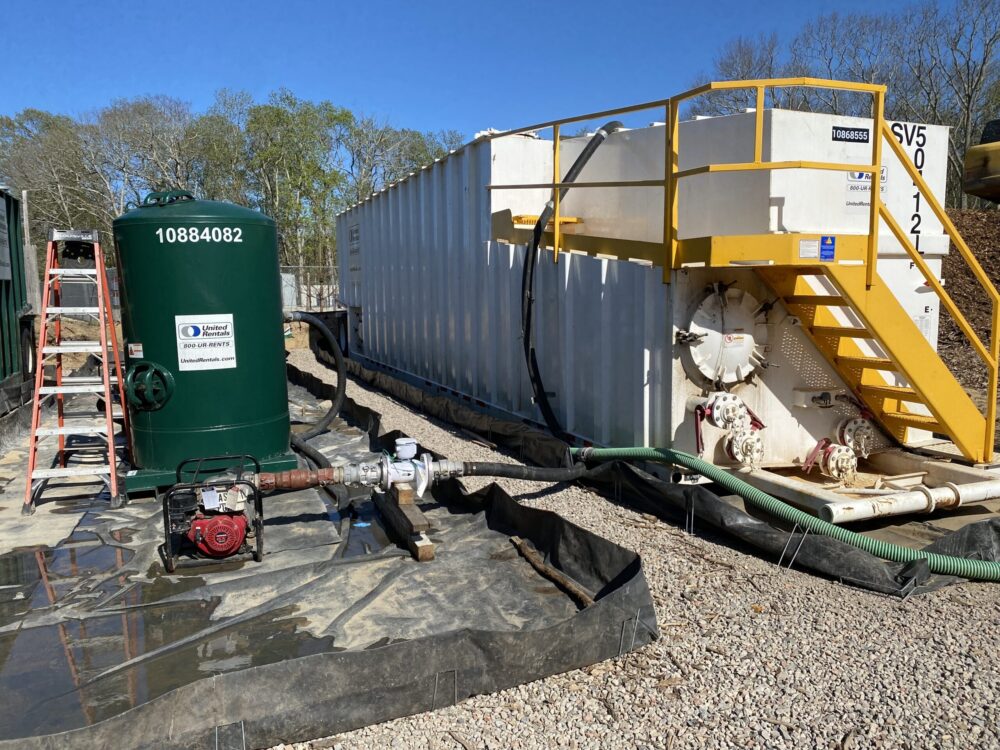
The South Fork Wind project has secured approval to use a Springs Fireplace Road property for the storage of soil and water removed from the ground as part of the installation of the wind farm’s power cable in Wainscott.
The wind farm will lease property at 209 Springs Fireplace Road, a light industrial property adjacent to the Bistrian sand and gravel mines, for the temporary storage of the materials from the excavations that will take place along the Long Island Rail Road tracks over the summer.
County records show the owner of the property as Springs Fireplace Road Holdings LLC.
The wind farm developers had originally planned to lease a property on nearby Tan Bark Trail, but the owners of the land revoked the lease offer after it became public.
Through the first half of the cable installation, which wrapped up earlier this month, the wind farm developers have been storing the excavated materials on the Cove Hollow property where a new substation will be constructed to handle the 130 megawatts of power from the wind farm.
But once construction begins on the substation, the storage, as well as staging of equipment and other vehicles, will need to be moved elsewhere.
The developers — the Danish energy company Ørsted and New England utility company Eversource — were given permission by East Hampton Town to use a town-owned property off Stephen Hands Path, that is currently used by the state Department of Transportation for storing road maintenance materials and equipment, as staging site for vehicles and equipment. But the town agreement does not allow any storage of excavated materials or water.
Because of concerns about contamination by the chemicals known as PFAS, which has been found in groundwater in Wainscott, the work plan for the trenching requires that all soil and any groundwater encountered during the escalation of the cable conduits be tested for pollutants and removed from the site for disposal at approved hazardous waste storage sites.
The water removed from the trenches is stored in 20,000 gallon containers and filtered with granulated carbon.
The storage of the materials is temporary while awaiting transport to permanent disposal facilities, an Ørsted spokesperson explained last month.
The company has said that none of the soil or water removed from the trenches has been found to be contaminated with PFAS and has posted testing results on the East Hampton Town website.